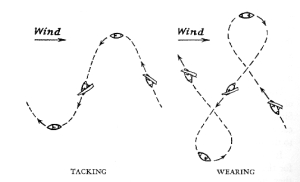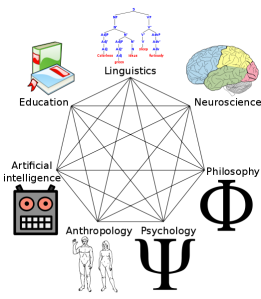
I’ve been asked before what I mean by cognitive philology. I perhaps mean something slightly different, or at least something more specific, by it than what's described in the Wikipedia entry. My background training has been largely in literary studies and traditional philology, with some formal training in more theoretical areas of structural linguistics, generative grammar, and so forth, though recently I’ve taken to the cognitive school of linguistics with all the fervor of a new convert. So I thought I’d write a bit of a potted history of linguistics to show where I’m coming from. I must admit this is highly subjective, as I’ve focused on the areas of linguistics that have influenced me the most, and so I’m leaving out all kinds of stuff that is important and influential generally, but just not to me personally, and I’ve chosen often to focus on particular linguists who are interesting and/or influential. I’m also grossly oversimplifying things as it suits my purposes, so take it all with a bit of a grain of salt. This post is mainly intended for those with an interest in language, but not much background knowledge; actual linguists need not read any further.1
In traditional philology one studies the history of languages by looking at old texts. So for instance one studies history of the English language by analysing old texts such as, lets say, medieval poems like Beowulf. By looking at texts from different time periods, from different regions or dialects, and by comparing related languages, such as Old English with various related Germanic languages such as Old Norse or Old Saxon, one can make pronouncements about how the language has changed over time and some of the forces that may have driven these changes. A philologist records and reports on the evidence found in historical texts. This approach to the study of language is a very old one, dating back to the 19th century (and earlier) with such founding fathers as Jacob Grimm (yes that Jacob Grimm of the the Brothers Grimm). In addition to collecting folktales, Grimm pioneered the field of comparative philology, devising Grimm’s Law, which described the relationship between certain consonant sounds in various Indo-European languages and how they came into Germanic languages like English.2 Indeed many scholars of the 19th century and earlier, such as Franz Bopp, Thomas Young, Sir William Jones, theorised about the relationship between the various languages which have now become known as the Indo-European language family, and at least as far back as the 16th century comments had been made about such similarities.3 This interest in Indo-European comparative philology kicked off a whole cottage industry in comparative studies in Indo-European (and other) cultures, such as comparative mythology and folklore, which included Grimm's other great work, the collection of folktales/fairytales he compiled with his brother Wilhelm. Grimm's Law was one of the first systematic expressions of this correspondence. As for philology, Grimm and his contemporaries were some of the first to take a truly scientific approach to language, focusing largely on phonology (the sounds of language) and language change. Another term for this sort of study is historical linguistics.4
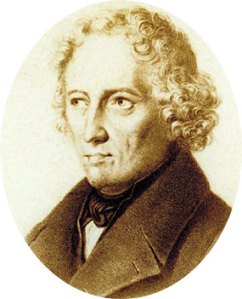
Incidentally, in addition to Grimm, I could have listed here any number of philologists who were important to the study of Old English in particular and the history of the English language in general. For instance Karl Verner who formulated Verner’s Law which explained the seeming exceptions to Grimm’s Law, or the many lexicographers from Samuel Johnson to James Murray, famed editor of the Oxford English Dictionary, which revolutionized how dictionaries are made and used, and many editors of various early editions, such as those involved in the Early English Text Society. One in particular worthy of at least brief mention is Henry Sweet, who in addition to writing various works on Germanic philology, including A Student’s Dictionary of Anglo-Saxon, was the model for Henry Higgins in George Bernard Shaw’s Pygmalion.5 All of these 19th century philologists pushed forward our understanding of language and its history during an explosively productive time.

Aside from historical linguistics, the study of language throughout the 20th century and into the 21st has become highly theoretical, and often focuses on the spoken language of living speakers, who can be test subjects in the lab. Linguists started to theorise how language worked at some deeper level, rather than just describing it and its history in great detail.6 To a large extent the late 19th and early 20th century linguist Ferdinand de Saussure is responsible for the theoretical and structural approach to language. Saussure, for instance, hit upon the distinction between the theoretical system and its actual practice of language, what he termed langue and parole. Saussure is often regarded as the founder of modern linguistics.7
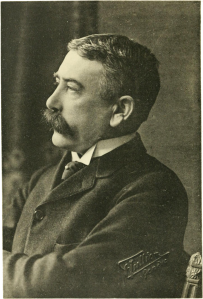
Perhaps one of the most important and influential linguistic ideas of the 20th century, which comes out of this structural approach, is the idea of the universal grammar, proposed by the famous linguist Noam Chomsky.8 This theory holds that all human languages share a basic universal structure which is hard-wired into the human brain, and the differences between languages are mostly surface level, and not indicative of the deeper structure of language. This also presupposes that there is a special language centre of the brain and that language is a specialised function of the brain. Furthermore, this internal grammar is said to be generative, in that it is a set of basic rules through which a theoretically infinite number of expressions can generated.9 This is the difference between human language and the forms of communication that animals use. While human language is infinitely flexible and can generate new expressions and ideas, animal communication is limited to a certain number of fixed expressions. Animals, as far as we know, have no syntax or generative grammar with which to produce novel expressions. They simply repeat the same few messages as required by the circumstance. Followers of Chomsky have sought to define how this universal and generative grammar works, and how we acquire this ability. This approach to language is often referred to as generative linguistics or formal linguistics.
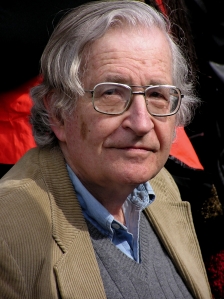
There have certainly been alternate opinions, such as the famous Sapir-Whorf hypothesis, associated with Edward Sapir10 and Benjamin Lee Whorf,11 which argues for linguistic relativity, that language difference is indicative of different ways of thinking, and that the language you speak can influence the way you perceive and think about the world.12 Linguistic relativity too has its foundations in Saussure’s ideas, particularly the relationship between thought and language and Saussure’s notions of linguistic signs and the concepts they signify. But the universal grammar model came to be the mainstream of linguistics.13 In the latter half of the 20th century the idea of linguistic relativity has fallen out of favour, and is even now not the mainstream opinion.
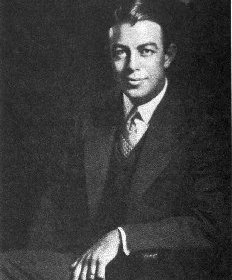
Also quite influential in the 20th century has been the field of sociolinguistics, which examines language in the context of society -- how language is used in different social contexts, such as in different social and socioeconomic groups, and how society effects language. A notable linguist in this field is William Labov, who is widely know for his study of Black English Vernacular (BEV). Labov argued that BEV should not be thought of as substandard, but was in fact remarkably expressive and grammatically consistent, and worthy of academic study.14 This is part of a larger trend in linguistics of the 20th century away from prescriptivism (instructing people about the so-called ‘correct’ way to speak and write) and towards descriptivism (studying how language is actually used in the real world rather than in theoretical and abstract grammar books, without value judgement). A related field is pragmatics, which studies context-dependent meaning, and seeks to uncover the elements of meaning that can’t be explained by the study of the structure of language in formal linguistics. Thus for instance the utterance “It’s cold in here” when said to someone sitting next to an open window is a request to close the window. It is the context of the discourse that determines the meaning. William Labov engaged in this kind of discourse analysis, which has led to my own interest in examining discourse markers (such supposedly meaningless, though actually significant and meaningful, filler phrases such as “so”, “you know”, “I mean”, and “actually”) and their use in medieval narrative.15

More recently, a new branch of linguistics has developed called cognitive linguistics, which attempts to explain language by drawing on more general theories of human cognition developed by cognitive scientists and cognitive psychologists. Simply put, according to the cognitive approach, language is explained with reference to the same basic principles that govern human cognition generally, as illuminated by the research being done by cognitive scientists. Thus cognitive linguistics can often stray into areas of neuroscience and cognitive psychology. Instead of seeing language as the product of a specialised language organ in the brain, as per the universal grammar model, in cognitive linguistics language is intricately linked to human conceptualisation generally. It’s almost as if language is a by-product of human cognition. And so general principles of human cognition, as explored by cognitive scientists, must be able to account for the way language works as much as possible. Thus cognitive linguistics is a necessarily interdisciplinary field, just as cognitive science is, incorporating areas such as neuroscience, psychology, artificial intelligence, linguistics, anthropology, and philosophy.16
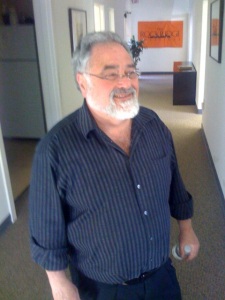
One of the most well-known and influential ideas to come out of the cognitive linguistic approach is the emphasis on metaphor, which George Lakoff and Mark Johnson explore in Metaphors We Live By. The argument is that metaphor is fundamental to all language, and indeed to all thought. We use metaphors as a way of thinking about and talking about abstract things by relating them to more concrete things. Thus when we say we are “in trouble” we are metaphorically conceiving of trouble as a container.17 Or when you say you “spend time” doing something you are drawing on the “time is money” metaphor. Some other significant scholars working in these kinds of areas include Mark Turner and Rafael E. Núñez.
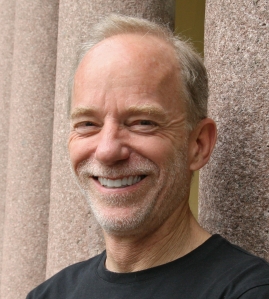
Along with the greater focus on the cognition of speech has very recently come a resurgence in interest in the linguistic relativity question. In particular, over the past decade cognitive scientists such as Lera Boroditsky have been exploring the ways in which language shapes thought. No longer holding to the hard-line strong version of the Sapir-Whorf hypothesis that claimed that language determined thought and thus that language was some kind of limiting factor, the argument now is that language can be a factor in shaping habitual thought.18

Thus finally we come back to my use of the term cognitive philology. I suppose what I’m driving at is the literary and philological implications of cognitive linguistics. Of course there are other literary scholars who have sought to apply the ideas of cognitive science, and cognitive linguistics in particular, to the study of literature, and this has led to a field often referred to as cognitive poetics. Frequently, for instance, such scholarship examines the use of conceptual metaphor in literary texts, and how that contributes to the meaning of literature.19 But what I’m aiming at is perhaps somewhat broader than just cognitive poetics, involving the intersection of language, thought, history and culture.20 Language is an entry point into the mind, and a particularly useful one when studying historical periods, as the people themselves are long dead. All human culture is the product of human cognition, and can thus not really be understood without the lens of cognitive science; and if language is intimately linked with cognition, it is an important window into the human cognitive process and therefore human culture. Through the study of language, we can study the history of human thought and culture, and I hope to be able to show, in a small way at least, why this is interesting and important for everyone to understand. Language is the monument of thousands of years of human culture.
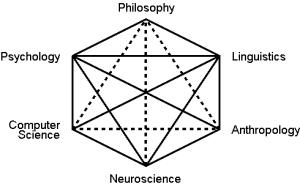
So writing this post has served a double purpose -- it explains some of the theoretical background to what I want to blog about, especially important if you don’t already have a background in languages or linguistics, but it’s also an opportunity for me to think out loud a bit. If you’ve made it this far, thanks for reading! As a reward, here’s a sketch by Stephen Fry and Hugh Laurie discussing language, which picks up on notions of Saussurian lange and parole, Chomskian generative grammar, the relationship between language and culture, pragmatics, and the formulaic nature of language. See how much funnier it is now that you’ve read all that?21
[youtube http://www.youtube.com/watch?v=hHQ2756cyD8?rel=0&w=420&h=315]
1 Indeed it might actually infuriate you to read this post if you’re an actual linguist, so you may as well stop now. Still here? Okay, but don’t say I didn’t warn you! [back]
2 For instance the Germanic f in English words such as foot, father, and fish corresponds predictably with p in other IE languages, such as Latin pes/pedis, pater, and piscis (and also with Greek πούς and πατηρ, for that matter — feel free to find correspondences in other languages, or consider other basic words like numbers (one, two, three, etc.) in as many languages as you know. It’s fun! [back]
3 An interesting side note, the Danish philologist Rasmus Christian Rask more or less came up with the same idea as Grimm, and Grimm initially credited him with this, hence it’s sometimes referred to as Rask’s-Grimm’s Rule. [back]
4 At least that’s what linguists working in linguistics departments would call it. Today, scholars focusing on language in literary fields, such as my own medieval studies, still tend to use the term philology. [back]
5 Sweet, not known for a sweet disposition but instead something of an irascible figure -- the prefaces to his various works make for quite entertaining reading -- was somewhat embittered that he did not receive a university professorship position as he thought he deserved. I’ve often felt quite a kinship with Sweet, and have often said, though I wouldn’t have wanted to live in the middle ages, I would love to have been a Victorian medieval philologist. [back]
6 This also brings up the distinction between diachronic linguistics, which is another term for historical linguistics (that is the way language changes over time), and synchronic linguistics, the study of language at one point in time. [back]
7 Saussure’s work also kicked off the field of semiotics, which has become significant in the literary critical world. [back]
8 Interestingly, I suspect as many people know of Chomsky for his political commentary as for his linguistics work. I guess politics is more flashy than linguistics. However, in a future post I’d like to explore how politics is really all about language anyway. [back]
9 Chomsky devised the sentence “Colorless green ideas sleep furiously”, demonstrating among other things that the generative grammar can produce a syntactically well-formed sentence even if it was semantically nonsense. Lewis Carroll’s poem “The Jabberwocky” achieves much the same effect. [back]
10 Sapir is known for developing the anthropological approach to linguistics, looking at how language and culture interact, a topic I’m much interested in. As a personal side note, Sapir lived for a time in my hometown Ottawa (Canada), working for the Geological Survey of Canada. That's a connection I'd really like to look more into. [back]
11 Whorf has often been criticised as a dilettante, as he was originally trained as a chemical engineer, and only came to the study of linguistics later in life. However, the strengths and weaknesses of his work should stand for themselves. [back]
12 Essentially the claim is that language can affect the way you think in very fundamental ways; language differences can lead to differences in cognition. The original strong version of this theory, linguistic determinism, claimed that the language you spoke determined the way you were able to think about the world. The more recent versions of this idea claim that language can have an effect on the way you think but is not an absolute determiner of it. You can read more about linguistic relativity on Wikipedia or even better in this easily approachable and very well explained entry by Lera Boroditsky in the Encyclopedia of Cognitive Science. [back]
13 Linguistic relativity is a complex topic that I’ve already briefly touched on, and I’ll come back to in more detail in an upcoming post. [back]
14 BEV is now more commonly referred to as African American Vernacular English (AAVE) or Ebonics. For an interesting discussion of this topic, have a listen to episode 4 of Slate’s excellent language podcast Lexicon Valley. [back]
15 A number of medievalists, such as Suzanne Fleischman, Laurel J. Brinton, and Peter Richardson, have focused on pragmatics and discourse markers, and they've been big influences on me as well. I’ll probably write a fuller post on this topic in another post, as pragmatics and discourse markers were the focus of my research for the first five years or so after completing my doctorate. [back]
16 This interdisciplinarity is what lies behind the graphics I've included at the beginning and end of this post. The graphics use the hexagram and heptagram to show the interrelated nature of these fields in cognitive science, an image which also lies behind the name of this blog -- the endless knot is a phrase from the 14th century poem Sir Gawain and the Green Knight and refers to the emblem of the pentangle or pentagram which Gawain has emblazoned on his shield. It is an image of the interconnectedness of things. Interconnectivity and interdisciplinarity are at the very heart of what I'm doing, and I'll be blogging much more about them soon. [back]
17 Children learn the basic conceptual schema of “container” when they spend hours putting things in and then taking them out of a box or other container. It seems to fascinate them endlessly to repeat this simple act, which later becomes fundamental to their thinking about the world in later life. [back]
18 Boroditsky’s work has been particularly influential for me lately. I’ve written a bit about this already, and will post a fuller discussion of linguistic relativity later. In the meantime, have a look at Boroditsky’s website, which includes both her scholarly publications and more popular articles, and check out this public lecture, which is a very approachable and entertaining introduction to the subject of linguistic relativity. [back]
19 That certainly is part of what I’m trying to do on this blog. See for instance my post on the seafaring metaphor. [back]
20 Mark Turner has an interesting article along these lines called “The Cognitive Study of Art, Language, and Literature” Poetics Today 23.1 (2002): 9-20. [back]
21 Yes, this whole post has been in part an attempt to show why this sketch is so funny. [back]










